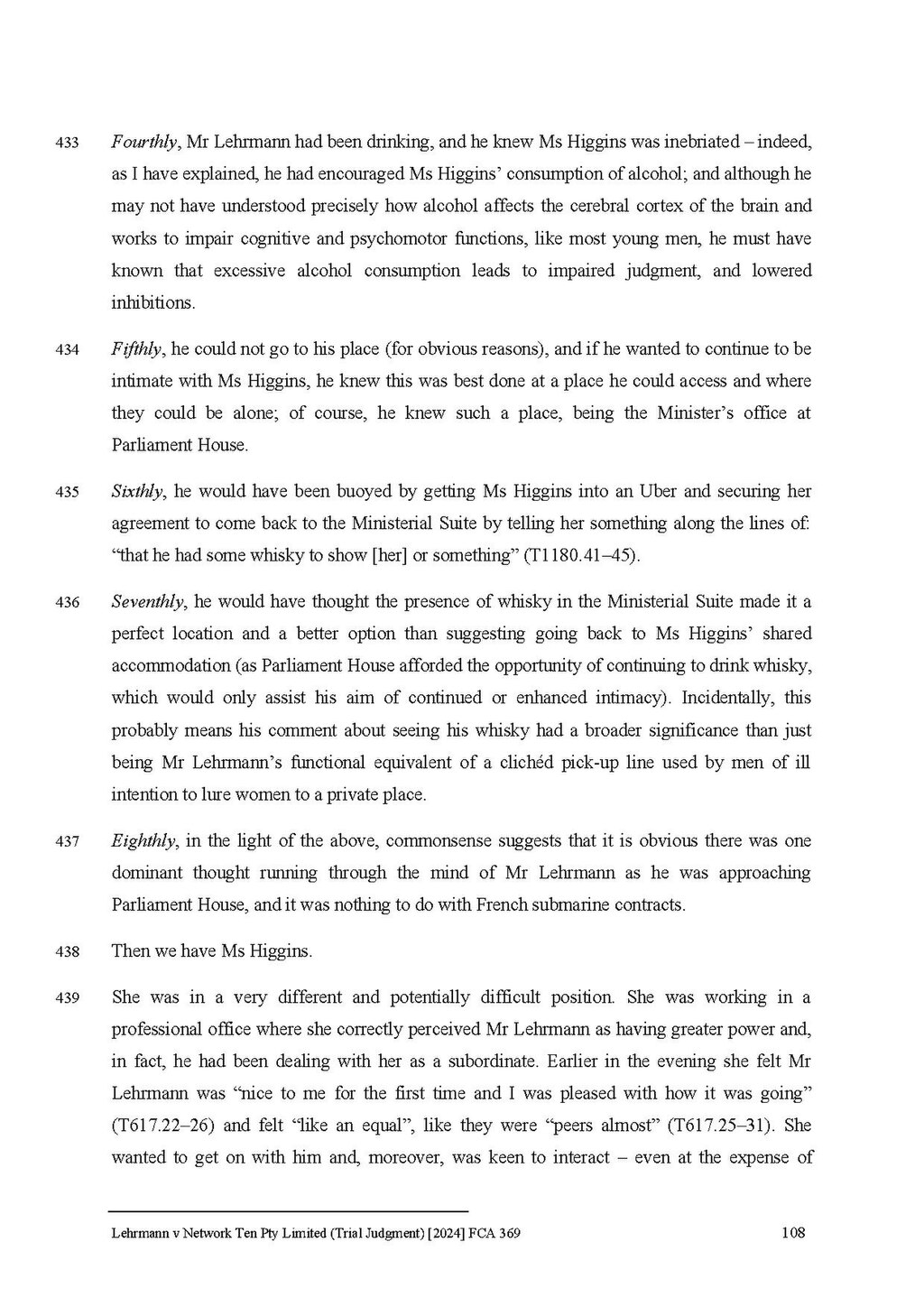433 Fourthly, Mr Lehrmann had been drinking, and he knew Ms Higgins was inebriated – indeed, as I have explained, he had encouraged Ms Higgins' consumption of alcohol; and although he may not have understood precisely how alcohol affects the cerebral cortex of the brain and works to impair cognitive and psychomotor functions, like most young men, he must have known that excessive alcohol consumption leads to impaired judgment, and lowered inhibitions.
434 Fifthly, he could not go to his place (for obvious reasons), and if he wanted to continue to be intimate with Ms Higgins, he knew this was best done at a place he could access and where they could be alone; of course, he knew such a place, being the Minister's office at Parliament House.
435 Sixthly, he would have been buoyed by getting Ms Higgins into an Uber and securing her agreement to come back to the Ministerial Suite by telling her something along the lines of: "that he had some whisky to show [her] or something" (T1180.41–45).
436 Seventhly, he would have thought the presence of whisky in the Ministerial Suite made it a perfect location and a better option than suggesting going back to Ms Higgins' shared accommodation (as Parliament House afforded the opportunity of continuing to drink whisky, which would only assist his aim of continued or enhanced intimacy). Incidentally, this probably means his comment about seeing his whisky had a broader significance than just being Mr Lehrmann's functional equivalent of a clichéd pick-up line used by men of ill intention to lure women to a private place.
437 Eighthly, in the light of the above, commonsense suggests that it is obvious there was one dominant thought running through the mind of Mr Lehrmann as he was approaching Parliament House, and it was nothing to do with French submarine contracts.
438 Then we have Ms Higgins.
439 She was in a very different and potentially difficult position. She was working in a professional office where she correctly perceived Mr Lehrmann as having greater power and, in fact, he had been dealing with her as a subordinate. Earlier in the evening she felt Mr Lehrmann was "nice to me for the first time and I was pleased with how it was going" (T617.22–26) and felt "like an equal", like they were "peers almost" (T617.25–31). She wanted to get on with him and, moreover, was keen to interact – even at the expense of
